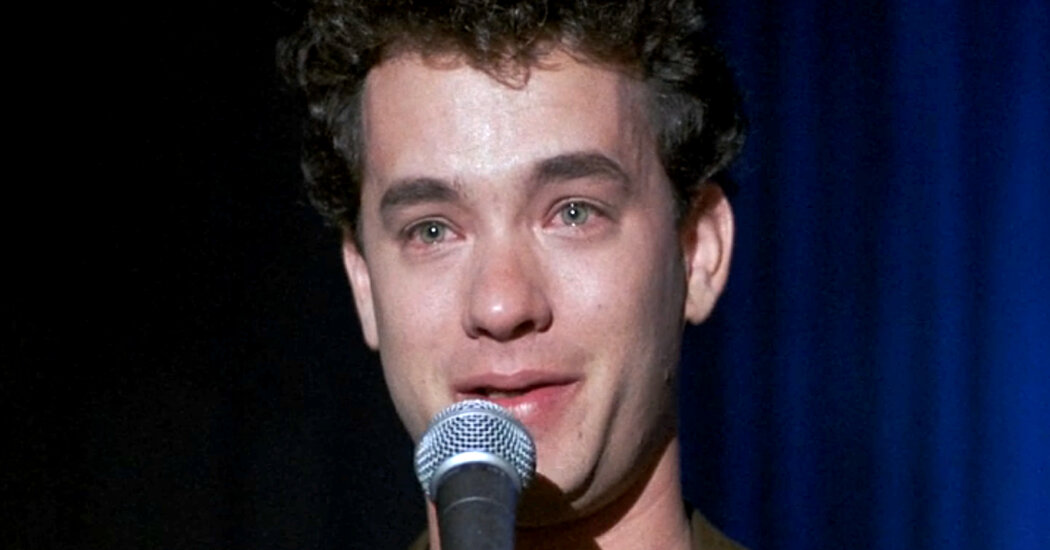Stop me if you’ve heard this one before. A stand-up comic, tired of hiding behind jokes, jolts the audience by finally getting real with a personal confession, which, invariably, changes everything.
It’s corny, if effective, and is such a common scene that I have come to expect it in any movie or TV show about a comedian, like explosions in an action movie or a marriage at the end of a romantic comedy.
An early example is from the movie “Punchline,” when Tom Hanks chokes up telling a club audience that he disappointed his father, failing out of medical school:
In “Obvious Child,” Jenny Slate stops joking in one set to say she was cheated on. Things get dark:
After his jokes are met with awkward silence, Kumail Nanjiani pivots abruptly in “The Big Sick,” offering an apology and an explanation:
In the hit “Baby Reindeer,” the comic Donny Dunn (Richard Gadd) breaks out in dramatic sobs and florid metaphors, revealing he’s the victim of abuse that has made him loathe himself. It’s a speech that would fit right into a clip at an awards show:
The latest example can be seen in the recent season of “Hacks,” where the usually jaded host Deborah Vance (Jean Smart) refuses the network’s order to fire her head writer, using her opening monologue to become tearfully sentimental and quit in protest:
These movies make stand-up look like therapy, albeit a kind that follows a pretty rigid script.
The confession is usually triggered by a joke bombing:
Expect shots of stunned audience members …
… along with a nervous chuckle, a cough, a dry lip smack, a mic squeak and some throat-clearing:
Someone always walks out, usually an audience member …
… sometimes a network executive:
Then the comic gets mad at the world.
Some scenes are more realistic than others, especially those that illustrate artistic evolution. In “Sleepwalk With Me,” Mike Birbiglia plays a struggling comic telling jokes that don’t connect. That changes after he takes the microphone off the stand and gets honest:
The epiphany is less personal than aesthetic. In the first episode of “Crashing,” Pete Holmes plays another green comic who goes more confessional, with the opposite result:
In real life, comics abruptly stopping their act to get soberly personal almost never happens, but there are exceptions. Someone like Jerrod Carmichael often aims for stand-up that has the feel of one of these intimate scenes, including his special “Rothaniel,” in which he divulges secrets between punchlines:
It’s possible that Deborah Vance from “Hacks” would depart wildly from character and quit on air. Or that the comic in “Baby Reindeer” would dump all his subtext into an eloquently improvised 10-minute monologue in a comedy contest. But the reason we keep seeing such scenes over and over has a more practical explanation.
An onstage speech is the easiest way to dramatize the emotional landscape of a character. In real life, that can be messy and often underarticulated. But for a dramatic shortcut, put the feelings onstage inside a climactic monologue and you will have the audience’s attention. The alternative — to get real with you for a moment — is the hard work of writing a nuanced, believable scene.
Videos: Columbia Pictures (“Punchline”); A24 (“Obvious Child”); Amazon Studios and Lionsgate (“The Big Sick”); Netflix (“Baby Reindeer”); HBO (“Crashing” and “Rothaniel”); HBO Max (“Hacks”); IFC Films (“Sleepwalk With Me”)
Produced by Tala Safie. Design by Alice Fang.
